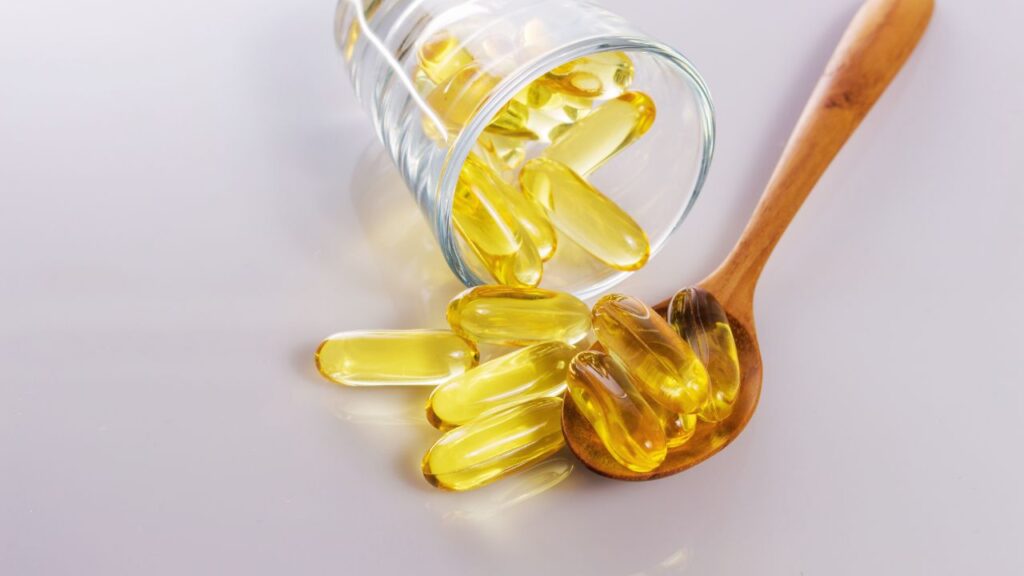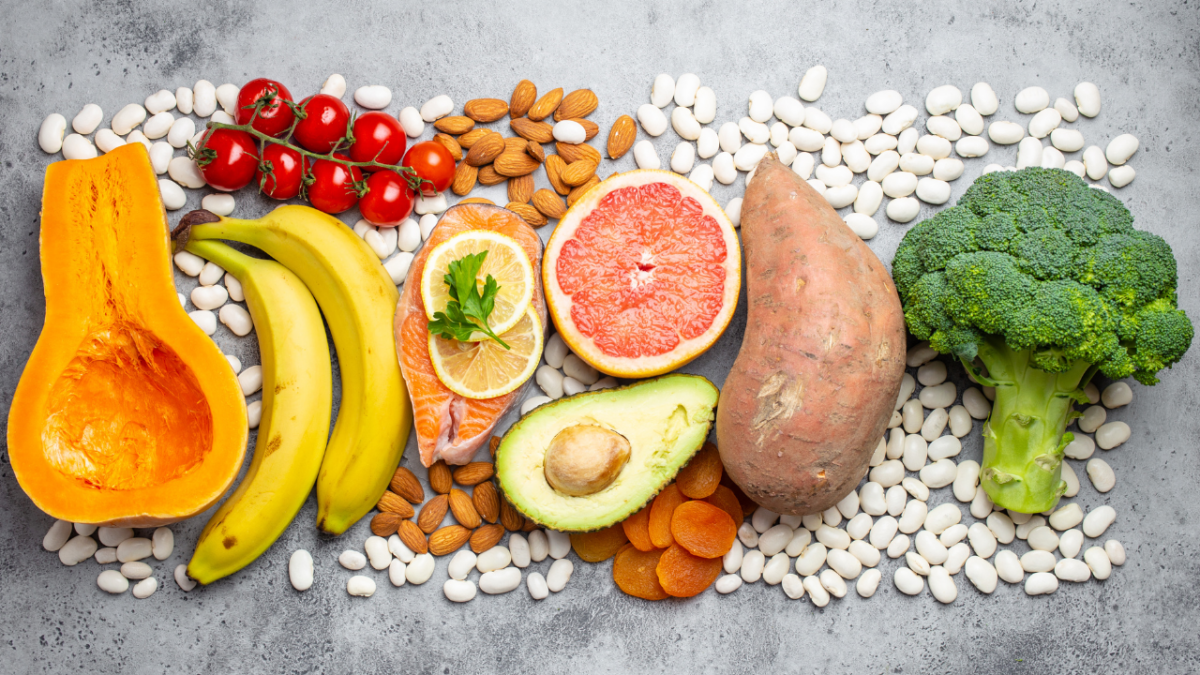Is Evening Primrose Oil the Menopause Game-Changer You’ve Been Looking For?
Menopause—it’s a natural milestone in every woman’s life, but let’s face it, it’s not all sunshine and rainbows. From hot flashes that make you feel like you’re living in a sauna to mood swings that have you crying over commercials, the symptoms can be as unpredictable as they are challenging. Enter evening primrose oil (EPO), a little golden drop of nature that might just be your new best friend.
Packed with gamma-linolenic acid (GLA), EPO is a supplement that’s been buzzing around the health and wellness community for its potential to ease those pesky menopausal symptoms. So, grab a cup of tea and let’s dive into why evening primrose oil might become the MVP of your menopause journey.
1. Goodbye, Hot Flashes and Night Sweats
If you’ve ever woken up drenched in sweat at 2 a.m., you know how frustrating hot flashes and night sweats can be. These are hallmark symptoms of menopause caused by fluctuating estrogen levels. While they’re completely normal, they’re far from enjoyable.
EPO has been studied for its potential to manage the severity of hot flashes. In one clinical trial published in the Archives of Gynecology and Obstetrics, women who took evening primrose oil experienced a noticeable reduction in the intensity of their hot flashes compared to those who took a placebo1. Additionally, evening primrose oil was found to effectively decrease both the frequency and severity of night sweats2, bringing much-needed relief to sleepless nights. Imagine turning the temperature down from “volcanic” to “manageable tropical heat”—we’ll take it!
2. Moisturize from the Inside Out
Menopause can sometimes make your skin feel as dry as the Sahara Desert. Hormonal changes during this time lead to a drop in collagen production, and your skin might lose some of that youthful bounce and glow.
EPO is a superstar for supporting skin health. The GLA it contains is believed to help restore moisture and reduce inflammation3. In fact, it’s often used for skin conditions like eczema and acne. For menopausal women dealing with dryness, evening primrose oil might be a game-changer in regaining some of that lost hydration. Bonus points: healthier, glowing skin can definitely boost your confidence.
3. Mood Swings? Take a Breather with EPO
Have you ever cried because you accidentally stepped on a Lego or felt inexplicably irritable over burnt toast? That’s menopause for you. Emotional ups and downs are par for the course, thanks to hormonal fluctuations.
A triple-blind randomized clinical trial published in the Journal of Menopausal Medicine found that women who took evening primrose oil reported significant improvements in psychological symptoms such as anxiety, irritability, and overall well-being4. Imagine going through your day without feeling like your emotions are on a rollercoaster ride—it sounds like a dream, doesn’t it?
4. Joint Comfort and Mobility
With menopause often comes joint stiffness and discomfort, which can make you feel older than you are. This is partly due to declining estrogen levels, which play a role in keeping your joints well-lubricated and inflammation in check.
EPO’s anti-inflammatory properties might come to the rescue here. Some studies suggest that GLA can help reduce inflammation and improve joint mobility5. While research on this topic is still in its early stages, there’s enough promise to make evening primrose oil worth considering if joint discomfort is slowing you down.
5. Supporting Bone Health
So, researchers have been curious about whether evening primrose oil (EPO) might help keep bones strong, especially for folks dealing with osteoporosis—a condition where bones get weak and brittle, often after menopause. EPO has omega-6 fatty acids, which are part of a bigger family of healthy fats called PUFAs (polyunsaturated fatty acids). These fats have been studied to see if they can help with bone density.
In one study, people took a combo of EPO, fish oil, and calcium supplements for 18 months. Turns out, the folks taking these supplements had slower or even reversed bone loss compared to those who got a placebo6. Pretty cool, right? But here’s the twist: a big genetic study looked at omega-6s and bone health and didn’t find a clear link. Still, it opened the door for more research to figure out if omega-6s, like the ones in EPO, might play a role in keeping bones sturdy. So, while it’s not a slam dunk yet, it’s definitely something to keep an eye on!
6. A Natural Solution to Breast Tenderness
Breast tenderness isn’t just a PMS thing—it can also rear its head during menopause. Some women find it uncomfortable enough to interfere with daily life.
Evening primrose oil has a long history of being used to relieve breast pain and tenderness7. In fact, it’s one of the most common supplements recommended for this issue. The GLA in EPO is thought to reduce inflammation and balance certain hormones, leading to relief from discomfort.
How Does EPO Work Its Magic?
At this point, you might be wondering what makes evening primrose oil so special. The secret lies in gamma-linolenic acid (GLA), an omega-6 fatty acid that your body converts into prostaglandins. Prostaglandins are hormone-like substances that play a key role in reducing inflammation, regulating blood flow, and balancing hormonal shifts. By introducing more GLA into your system, EPO helps support these processes, which can ease some of the physical and emotional symptoms of menopause.
Are There Any Side Effects?
As amazing as EPO sounds, it’s not without its potential drawbacks. While it’s generally considered safe for most people, some individuals may experience mild side effects like nausea, headaches, or stomach upset. Rarely, it could increase the risk of bleeding for those on anticoagulant medications or trigger seizures in people with epilepsy. Always consult your healthcare provider before adding EPO to your supplement routine, especially if you have pre-existing conditions or take other medications.
How to Use EPO for Menopause

So, you’re sold on the idea of trying evening primrose oil—what’s next? Here are a few tips:
- Dosage: For menopause symptoms, dosages of 500 mg to 3,000 mg daily are commonly used, depending on the severity of symptoms. Start with a lower dose and increase gradually.
- Timing: Consistency is key. Take EPO at the same time each day, with food, to maximize absorption.
- Form: EPO is available in capsules and as an oil. Capsules are more convenient and easier to dose accurately.
The Verdict: Should You Try Evening Primrose Oil?
While evening primrose oil isn’t a miracle cure for menopause, it shows plenty of potential as a natural option to make this transition a little smoother. From taming hot flashes and mood swings to boosting skin health and joint comfort, it might just be the secret weapon your menopause toolkit has been missing.
Remember, though, what works wonders for one person might not work as well for another. Always consult your doctor or a healthcare professional before starting any new supplement to ensure it’s a safe and effective choice for you.
Evening primrose oil: it’s golden, it’s versatile, and it just might help you feel like yourself again. Who wouldn’t want that during menopause? Here’s to embracing this new chapter with a little extra glow—and maybe fewer hot flashes.
References
- Karen Christelle, Maryam Mohd Zulkfili, Norhayati Mohd Noor, Nani Draman, The Effects of Evening-Primrose Oil on Menopausal Symptoms: A Systematic Review and Meta-analysis of Randomized Controlled Trials, Current Women`s Health Reviews; Volume 16, Issue 4, Year 2020, .
DOI: 10.2174/1573404816999200702162750 ↩︎ - Kazemi F, Masoumi SZ, Shayan A, Oshvandi K. The Effect of Evening Primrose Oil Capsule on Hot Flashes and Night Sweats in Postmenopausal Women: A Single-Blind Randomized Controlled Trial. J Menopausal Med. 2021 Apr;27(1):8-14. https://doi.org/10.6118/jmm.20033 ↩︎
- National Center for Complementary and Integrative Health. (n.d.). Evening primrose oil. Retrieved March 11, 2025, from https://www.nccih.nih.gov/health/evening-primrose-oil ↩︎
- Safdari F, Motaghi Dastenaei B, Kheiri S, Karimiankakolaki Z. Effect of Evening Primrose Oil on Postmenopausal Psychological Symptoms: A Triple-Blind Randomized Clinical Trial. J Menopausal Med. 2021 Aug;27(2):58-65. doi: 10.6118/jmm.21010. PMID: 34463069; PMCID: PMC8408320. ↩︎
- Nature’s Best. (n.d.). Should I be taking evening primrose oil for menopause? Retrieved March 11, 2025, from https://www.naturesbest.co.uk/our-blog/the-menopause/should-i-be-taking-evening-primrose-oil-for-menopause/?form=MG0AV3 ↩︎
- Harris M, Farrell V, Houtkooper L, Going S, Lohman T. Associations of polyunsaturated fatty acid intake with bone mineral density in postmenopausal women. J Osteoporos. 2015;2015:737521. doi:10.1155%2F2015%2F737521 ↩︎
- Goyal. LE., Mansel RE., ); Efamast Study Group. A randomized multicenter study of gamolenic acid (Efamast) with and without antioxidant vitamins and minerals in the management of mastalgia. Breast J. 2005;11:41-47. ↩︎
Disclaimer: The content provided in this blog is intended for informational purposes only. It is derived from scientific studies (involving human, animal, or in vitro research), clinical experience, or traditional practices, as referenced in each article. Please note that the outcomes described may not apply to all individuals. Self-treatment is strongly discouraged for serious or life-threatening conditions, which require professional medical intervention. For many of the conditions discussed, conventional treatments, including prescription or over-the-counter medications, may also be available. It is essential to consult your physician, healthcare provider, or pharmacist regarding any health concerns before using supplements or making changes to prescribed medications. Always seek professional guidance for your specific health needs.





